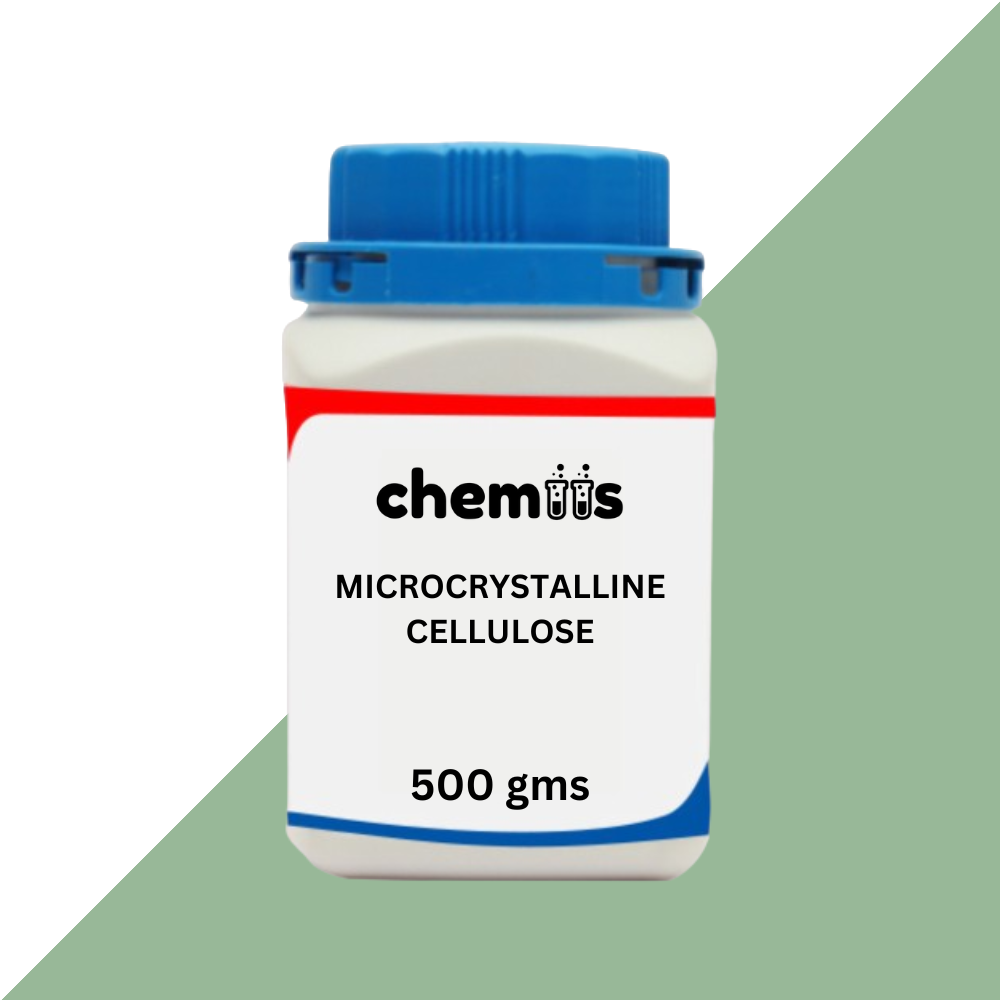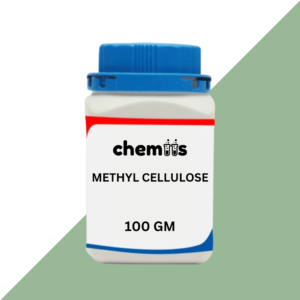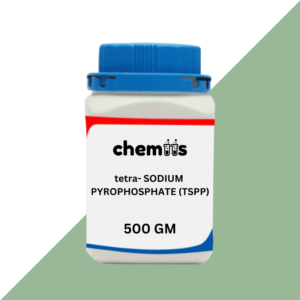Microcrystalline Cellulose (MCC) is a purified, partially depolymerized form of cellulose, typically derived from plant fiber sources such as wood pulp. It is a white, odorless powder with a crystalline structure, widely used as an excipient in pharmaceuticals, food, and cosmetics. Due to its excellent binding properties, MCC is commonly used in tablet formulations and as a stabilizer in food products. It is also valued for its ability to improve the texture and consistency of various formulations.
Microcrystalline Cellulose is a versatile ingredient that serves multiple roles, including as a binder, filler, emulsifier, and stabilizer. It is known for its high purity, low moisture content, and minimal effect on the final product’s taste, making it indispensable in the pharmaceutical and food industries.
Applications of Microcrystalline Cellulose (MCC)
- Pharmaceutical Industry
- Tablet Binder: MCC is primarily used as a binder in pharmaceutical tablet formulations. It helps in the formation of tablets by holding the ingredients together.
- Filler: It is often used as a filler in tablets and capsules to provide volume, especially in formulations where active pharmaceutical ingredients (APIs) are present in very small quantities.
- Disintegrant: In combination with other agents, MCC functions as a disintegrant, helping tablets break apart and release their active ingredients in the body.
- Stabilizer: MCC is used as a stabilizer in liquid pharmaceutical products, preventing separation and ensuring uniformity.
- Food Industry
- Food Additive: Microcrystalline Cellulose is commonly used as a food additive under the E number E460. It serves as a texturizer, emulsifier, and anti-caking agent in various processed food products like baked goods, sauces, and dairy products.
- Fat Replacement: It is used in low-fat and reduced-calorie food products as a fat replacer and helps in maintaining the desired texture and consistency.
- Thickener: MCC is used in certain food applications as a thickening agent to improve the viscosity of soups, gravies, and salad dressings.
- Cosmetics and Personal Care Products
- Rheology Modifier: MCC is widely used in the cosmetics industry as a rheology modifier, improving the flow, texture, and stability of cosmetic formulations like lotions, creams, and shampoos.
- Emulsifier and Stabilizer: It is used in creams and emulsions to improve consistency and prevent phase separation.
- Powders: Microcrystalline Cellulose is used in cosmetic powders (such as face powders and dry shampoos) to enhance their texture and absorption properties.
- Nutraceuticals and Dietary Supplements
- Filler in Supplements: MCC is used as a filler in dietary supplements like vitamins, minerals, and herbal capsules.
- Tablet Coating: It is often used in the coating of tablets and pills to prevent moisture, ensuring the stability of active ingredients.
- Pharmaceutical Dosage Forms
- Sustained-release formulations: MCC is frequently employed in sustained-release or controlled-release formulations of drugs, where it helps control the release of active ingredients over time.
- Oral Suspensions: MCC can be used in oral suspensions to improve the consistency and stability of the formulation.
- Industrial and Commercial Applications
- Paper Manufacturing: MCC is used in the paper and textile industries to improve the strength and durability of paper and fabrics.
- Paints and Coatings: In paints and coatings, MCC is used as a thickener to adjust the viscosity and improve spreadability.
- Detergents and Cleaning Products: MCC is sometimes used in the manufacture of detergents to improve consistency and increase the product’s ability to clean.
Safety and Handling
- Personal Protective Equipment (PPE):
- Gloves: Always wear protective gloves to avoid direct skin contact with MCC.
- Eye Protection: Use safety goggles to protect your eyes from airborne particles.
- Respiratory Protection: In environments where MCC dust is likely to be generated, use a dust mask or respirator with a particulate filter to avoid inhalation.
- Protective Clothing: Wear protective clothing to prevent skin exposure when handling MCC in large quantities or during industrial applications.
- Storage:
- Store Microcrystalline Cellulose in a cool, dry place away from heat sources and moisture.
- Ensure containers are sealed tightly to prevent contamination and exposure to humidity, which could affect the product’s quality.
- Keep it away from open flames, as MCC is highly flammable in powdered form.
- First Aid:
- Inhalation: Move to fresh air immediately if dust is inhaled. If breathing becomes difficult or symptoms persist, seek medical attention.
- Skin Contact: Wash the affected area with plenty of water and soap. If irritation persists, consult a healthcare professional.
- Eye Contact: Flush eyes immediately with plenty of water for at least 15 minutes. Seek medical attention if irritation continues.
- Ingestion: Rinse mouth with water. If swallowed in large quantities, seek medical advice immediately.
- Hazards:
- Health Hazards: Microcrystalline Cellulose is generally regarded as safe for use in food and pharmaceuticals. However, excessive inhalation of dust can cause respiratory irritation.
- Fire Hazard: The product is flammable in its powdered form and should be handled in a well-ventilated area, away from sparks or open flames.
- Dust Explosion Risk: When airborne, MCC dust may form explosive mixtures with air. Proper dust control measures should be in place in industrial settings.








Akash Tripathi (verified owner) –
Delivered safely and quickly.
Aman Sheikh (verified owner) –
Excellent service overall.
Jayant Mishra (verified owner) –
Products are exactly as described.
Amarjeet Singh (verified owner) –
Impressed with the service.
Sahil Chhabra (verified owner) –
Great for lab use.
Abhay Saxena (verified owner) –
No complaints at all.
Rajeev Bhagat (verified owner) –
Good support for queries.
Uday Thakur (verified owner) –
Product matches the description.
Snehal More (verified owner) –
Delivered in good condition.
Kripa Mehta (verified owner) –
Fast response to queries.